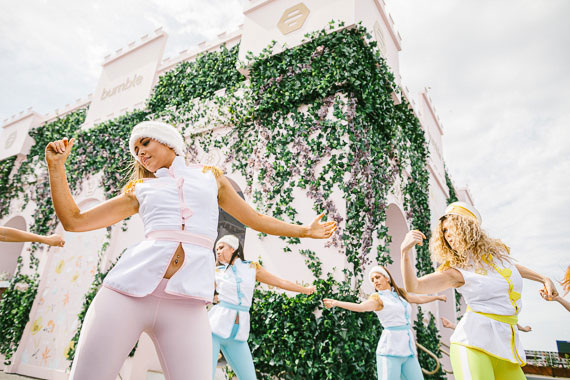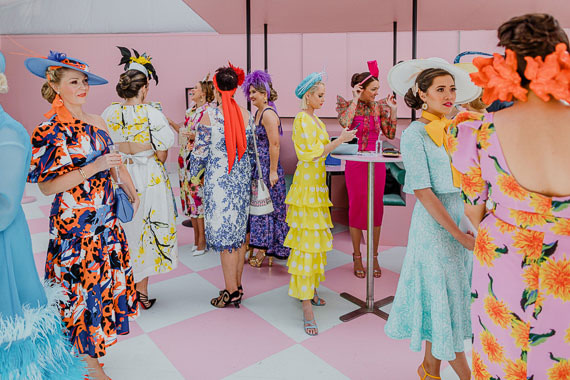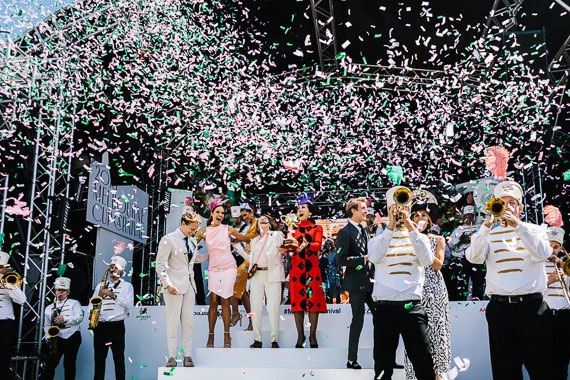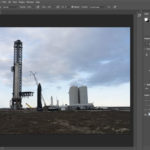For years now I’ve been photographing large scale events in Melbourne, Australia. It’s a wonderful big city with plenty of big events which require professional photography. World class sports events such as the Australian Open and the Melbourne Cup, or Formula One, take place there, as well as plenty of conferences and trade fairs in the numerous convention centers. The many cultural events and parties planned throughout the Australian summer offer plenty of opportunities for event photography.
Of course, when the COVID19 pandemic hit all large scale events came to a stop, leaving photographers with more time than ever to prepare for the next event season. In my case, the extra time got me thinking about everything I’ve learned over the years photographing event after event, which lead me to put together this list of my personal top five event photography tips.
The tips are bit unusual and unconventional – they don’t go into detail about your camera settings and don’t include technical tips about how to get the best shot. But, in my opinion these tips are the things often forgotten and are even more important when you want to succeed in the competitive field of event photography.
Tip 1: Reliability – Always Be Professional
Showing that you are professional will help you get hired by those high-end clients who organize large scale events. You won’t get many clients, even if you produce amazing images, when you only have an instagram account for people to see your work. A proper portfolio showcases your work in a professional manner and gives the client more information about yourself and your event photography.
You also will need to earn some trust and prove that you are up for the challenge of the job. When you get an enquiry, answer personally within 24 hours. Give your clients a proper quote and contract. Be professional. You might need to organize a second photographer or team, and plan the day with the client by going to briefing sessions.
At the event it’s best to look friendly and always have a smile on your face. Keep a positive attitude and lend a hand to anyone who needs it. You’re part of the event experience for the attendees. Take images of the guests and respect them. Of course the right gear is important for your event photography gig. Bringing a backup camera, shooting on two memory cards, backing up during the event and being able to process the photos in the press room during the event is imperative to being a professional event photographer.
Tip 2: Keep up the Energy
This is one of my favorites. At large scale events you need lots of energy. I sometimes walk over 25 kilometers per day on the event grounds at a sports event. Going after those different angles or perspectives keeps me busy walking around. You need to be relatively fit. You need to be able to carry around your gear. You need to be ready to capture the scene at a moment’s notice. So don’t forget to hydrate yourself well during the day and eat a big breakfast.
Tip 3: Speed – Be the Fastest Event Photographer
At large scale sports events you compete against lots of professional photographers. News agencies and newspapers send their best photographers to these events and it can be difficult to stand out. You might have the best photo of the winner of a sports competition. However, this won’t help you when you can’t get the files fast enough to the client.
In the times of social media, images can have a very short lifespan. The “fastest” photo wins! A live delivery (we are talking seconds here!) and instant processing is paramount. Most modern cameras have the technical capabilities of instant file transfer to the cloud or an FTP server. It happens with the push of a button on the camera and the photos get uploaded. The culling of the photos happens on the fly.
In an ideal world you have a second team member quickly processing the photo before giving it to the client. In reality you might work for yourself and you need to get the shot right in camera. It’s not always the best picture that wins the race to get published. It’s very often the fastest photo available to the big media outlets.
Tip 4: Stay Creative – Reinvent Your Event Photography
The best event photographers in the field don’t treat this as just a job. It’s a passion. You love the events and love to capture them in their best light. When you’re always going to the same type of event, it’s easy to get complacent and deliver similar shots at these events. You could burn out very fast and the joy you used to get from taking photos might not be there anymore. Not to worry – there’s an easy solution! Simply stay creative, reinvent yourself or try something new!
Lots of event photographers will say it’s impossible to try new thing at these fast paced events. But to stay ahead of the game, you have to do something different. Try a new thing at each event you are photographing. Practice. You’ll never end up learning anything new if you don’t.
Tip 5: Risk it – Don’t Always Play it Safe
As I said before, the fastest photo wins. Believe it or not, that’s the world of press photos and social media. But getting your photo to stand out, while also being fast, is how you beat the competition. That’s why it’s good to take risks in order to get those surprising and fresh shots that will put you ahead of the others. Try shooting at a low depth of field to get that standout image. And don’t be afraid to be in a different spot to get a new perspective. Making your photo look distinct from the rest will make all the difference.
Hope these tips help you a bit to get ahead of the pack in the event photography space. And always remember – enjoy shooting!
About the Author:
Andreas is a high-end event photographer at freshphotography in Melbourne. He captures small and large corporate and sports events. (He also shoots a limited number of weddings … as this is lots of fun!)
Like This Article?
Don't Miss The Next One!
Join over 100,000 photographers of all experience levels who receive our free photography tips and articles to stay current:








Leave a Reply